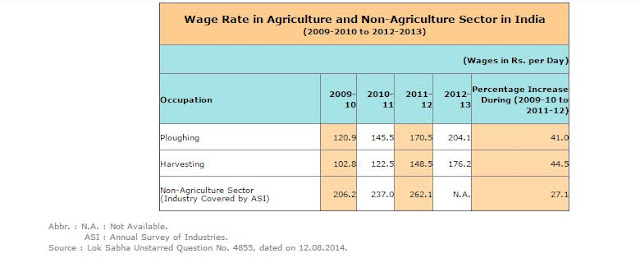When Ambedkar Talks with me...
Thank you for giving me time sir.
Dr. B.R. Ambedkar: It is always a pleasure talking on the socio-eco-political issues.
Sir, I don’t want to ask you the questions related to the caste and reservation in this session. I want to know your views on the state, development strategy, property, and state institution.
Dr. B.R. Ambedkar: Yes I will try to answer these questions. You know very well that I am a trained economist. I think I am not required to show my degree certificate, unlike others.
Yes, Dr. Ambedkar. Okay, let’s start. In this session, I will ask just two questions. In the next session, we will discuss more on caste and economies. So, my first question is that in the current situation, what role should state play for the welfare of the economy? Do you believe that the state should control all private property?
Dr. B.R. Ambedkar: Vivek, see I am against the abolishment of the individual incentives for the welfare. There are many ways other than economic through which the stronger section exploits a weaker section of the society. It may be the caste or religion. The class is just one factor. Therefore I believe that there is exploitation no doubt but the private property is not the one and only one reason behind the exploitation. Therefore abolishment of the property can’t be a solution. Now talking about the role of the state in the economy, see, the state should play the active role in the development process. My opposition to the abolishment of the private property doesn’t advocate the anti-state ownership view. I strongly believe in state socialism. The National Sample Survey Office (NSSO), Ministry of Statistics and Programme Implementation, Situation Assessment Survey of Agricultural Households in its 70th round (January – December 2013) report clearly shows that the land possession determines the principal source of the income of the agricultural household. The report finds that 60% of India lives in the agricultural household. And 52% of the agricultural households are in debt. In the so-called financially developed world, still, 40% of the households take the loan from non-institutional financial sectors like money lenders. There is no proper implementation of any policy. Very few farmers are using crop insurance. Therefore the ignorance of the state can be the reason behind the agricultural distress. I still argue for the state ownership of the agricultural land. But remember, when I say the state, I mean to say the democratic state. Now there are efforts taken to have collective farming, community farming etc. There should be a democratically decided common ownership of agricultural land. That will solve many problems in the agricultural sector like risk, uncertainty etc. Talking about industries, again I am not in favor of the complete state ownership of the industries. But the state should have limited control over the industries. Let’s take an example of the electricity. In the rural areas of the backward states, there is no incentive for the private player to provide the services because there is no profit. But electricity is important not just for consumption purpose but also for agriculture and other primary sectors. Therefore the state should have enough control over these industries so that the demand will be fulfilled.
Okay, it means you want the democratic solution and approach rather than the totalitarian and communist approach. My second question is that why India, being a young nation, is not growing with the expected growth rate?
Dr. BR Ambedkar: The main important reason which is still valid today is the restriction on the mobility of the labor as well as the capital. This might be because of the caste, class, religion or institutional barriers. See, the restriction on the mobility of the labor and the capital always generate the inefficient. The restriction over the mobility of the capital reflects the underutilization of the resources while the restriction over the mobility of the labor shows the improper use of the labor skills. Even in the current situation also one can find that a certain kind of works is being done by a certain kind of community. That immobility should be removed if India serious wants to grow…
We will try to discuss and work more on the same. Thank you so much, Dr. Babasaheb Ambedkar, for allocating the time for us. There is a lot to discuss. I hope you will give us time in the future.
Dr. B.R. Ambedkar: Yes sure... Good Night...
References:
Ambedkar, B. R. (1970). States and Minorities: What are their rights and how to secure them in the Constitution of free India. Baba Saheb Dr. Ambedkar Memorial Society.
Ambedkar, B. R. (2010). Dr. Babasaheb Ambedkar, Writings and Speeches: Dr. Ambedkar's The Pali grammar (Vol. 16). Education Department, Government of Maharashtra.
Ambedkar, B. R. (2014). Buddha or Karl Marx (Vol. 1). Ssoft Group, INDIA. Jadhav, N. (1991).
Neglected Economic Thought of Babasaheb Ambedkar. Economic and Political Weekly, 980-982.
The National Sample Survey Office (NSSO), Ministry of Statistics and Programme Implementation, Situation Assessment Survey of Agricultural Households in its 70th round (January – December 2013) report
The National Sample Survey Office (NSSO), Ministry of Statistics and Programme Implementation, Situation Assessment Survey of Agricultural Households in its 70th round (January – December 2013) report



टिप्पण्या
टिप्पणी पोस्ट करा